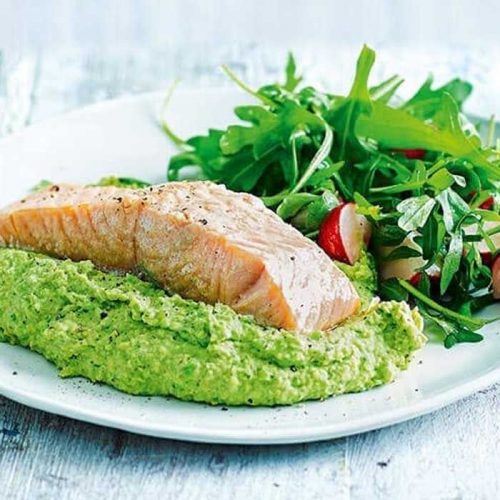
I’ve had a lot of conversations about fat recently.
That’s partly because of our cover feature in the July issue of Healthy Food Guide magazine, which is about fat: how much should we really eat; is saturated fat actually good for us; should we eat more fat to lose weight, etc. We did this feature because fat seems to be a topic that everyone’s talking about. Paleo dieters and books declaring ‘fat’s IN, sugar’s OUT’ have stoked the discussion. We wanted to answer some of the common questions we’d been getting about fats, since most of the media coverage on this has been pretty sensational, if not downright inaccurate. People are confused about fat.
In a way though, talking just about fat is the wrong conversation to be having. Of course it’s useful to understand the role of fat in the diet, what’s appropriate to eat and the difference between healthy and unhealthy fats. But focussing on a single nutrient – whether it’s fat or carbs or protein – is not a useful way to think about food and eating at all. What we should really be thinking about is food. Because when we get our food right, the nutrients tend to take care of themselves.
Dr David Katz, director of the Yale Prevention Research Centre and a nutrition-writing hero of mine, has nailed it in a recent blog post on this topic. He points out:
“Some of the best foods for health – vegetables, fruits, beans, lentils – are natively low in fat. Some – nuts, seeds, avocado, salmon – are quite high in fat. Some of the world's best diets are quite low in fat, others quite a bit higher. What they share is a focus on food, not too much, mostly plants.”
When we fixate on just one aspect of the diet, says Dr Katz, we risk messing it up at a big-picture level. We can already see this in the world of ‘sugar-free’ diets. I’m sure you’ve seen, as I have, the proliferation of ‘sugar-free’ treats out there – labelled clean, paleo, raw, grain-free and healthy – that are full of sugar by other names and are as energy-dense as any processed cake or lolly. The same goes for some gluten-free food products. We again risk heading along the path we’ve already been down in the days when low-fat everything was on the menu, and low-fat, sugary processed foods were all over our shelves. Eating these didn’t make us healthier – and eating faux-sugar-free foods won’t, either.
Neither will taking the message from fans of saturated fat that butter, cream and animal fat are back on the menu and we should go for broke on these. Without looking at the bigger picture of our overall diet, this is likely to be a health disaster.
While we all love black and white, ‘good’ or ‘bad’ answers to questions about food, it doesn’t always work this way. The science around fat in the diet is quite nuanced (more so than the headlines would suggest) and so the messages around fat are not always easy to understand. Even more reason, then, to focus on food rather than nutrients. When we focus on wholesome foods in sensible combinations, as Dr Katz says, the nutrients tend to get to a healthy balance naturally. You could also call this the old 'everything in moderation' message – perhaps modified slightly to include lots of veges and less junk – but basically that old-fashioned, unsexy advice that we all know in our hearts is a sustainable and healthy way of eating. Could this old mantra actually be a radical new movement? What do you say? Let’s forget about ‘fat versus sugar’ (a silly argument in the first place) and start a #moderationmovement today.
www.healthyfood.com











